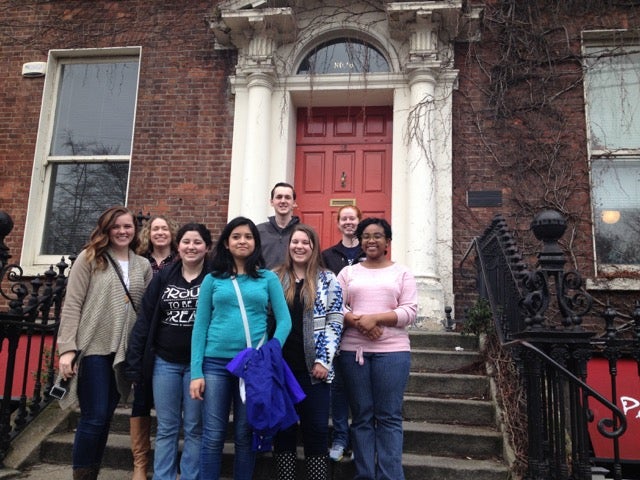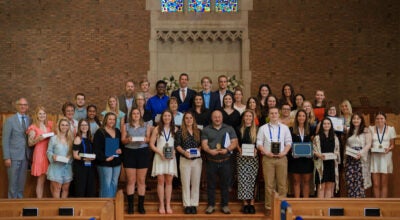More DCCC students studying abroad
Published 12:00 am Thursday, October 27, 2016

- DCCC students studying abroad in Ireland. Submitted photo
THOMASVILLE — More DCCC students are studying abroad, thanks in part to a national campaign to help colleges and universities to set clear goals and measurable actions to increase the number and diversity of American college students who study abroad by 2020.
At its 2016 Summit in Washington, D.C., last week, the Institute of International Education’s Generation Study Abroad initiative recognized Davidson County Community College and 11 other U.S. higher education institutions that have already exceeded their goals to boost study abroad participation. DCCC is among the first higher education institutions to meet or exceed their goals among the more than 700 colleges and organizations that have joined Generation Study Abroad since its launch two years ago.
Evidence indicates that students who study abroad have better grades, experience less attrition, and graduate from college at higher rates than students who do not study abroad. They are also shown to have a competitive edge on the job market – yet fewer than 10 percent of American undergraduates study abroad, and only one quarter of those are from underrepresented groups. In recent years, the Open Doors Report on International Educational Exchange has shown modest increases in study abroad, but it will take bold action to reach the ambitious goal of doubling study abroad.
Davidson County Community College exceeded its Generation Study Abroad commitment by finding innovative ways to market their programs to students who normally would not consider studying abroad.
“Study abroad is not a vacation. It is a life-changing educational experience that impacts a student in positive ways for the rest of his or her life,” says Suzanne LaVenture, DCCC’s director of international education. “Students who study abroad graduate at higher rates, find jobs at higher rates and earn higher salaries over their lifetimes. It’s an investment with long-paying dividends.”
On Wednesday DCCC hosted the Passport Caravan sponsored by the Council on International Education Exchange (CIEE). Earlier in the semester, more than 300 students applied for the opportunity to be one of 68 winners selected to apply for a passport free of charge at the event. Once issued, U.S. passports last for ten years, providing students a decade of possibilities to study, live, work and travel outside of the United States. The Passport Caravan is part of CIEE’s support of Generation Study Abroad. Generation Study Abroad focuses on breaking down the three major barriers to study abroad: cost, curriculum and culture. Over the next five years, CIEE plans to sponsor passports for 10,000 students around the country.
Davidson County Community College joins the following universities and colleges that have met their Generation Study Abroad commitments: the College of Charleston, Knox College, Lamar University, Pellissippi State Community College, Sacred Heart University, SUNY Oswego, SUNY Plattsburg, the New School, University of South Alabama, University of Nebraska-Lincoln and Upper Iowa University. The diversity of the 12 higher education institutions that have met or exceeded their goals early demonstrate how all institutional types – community colleges, arts schools, private liberal arts colleges, and public research universities alike – can incorporate study abroad into the American undergraduate experience. To learn more about each campus’s strategy for exceeding its Generation Study Abroad commitment, please visit www.generationstudyabroad.org.
“Just two years after joining Generation Study Abroad, colleges and universities across the country are seeing measurable results in their study abroad participation rates,” said Allan Goodman, president and CEO of the Institute of International Education, the nonprofit that leads the initiative. “Studying abroad is one of the best ways to prepare to enter and succeed in the interconnected, globalized workforce, yet 90 percent of American college students do not study or intern outside of the United States. We owe it to the next generation of Americans to explain why study abroad is more crucial than ever and to find ways to make it more accessible to a wider range of students.”



